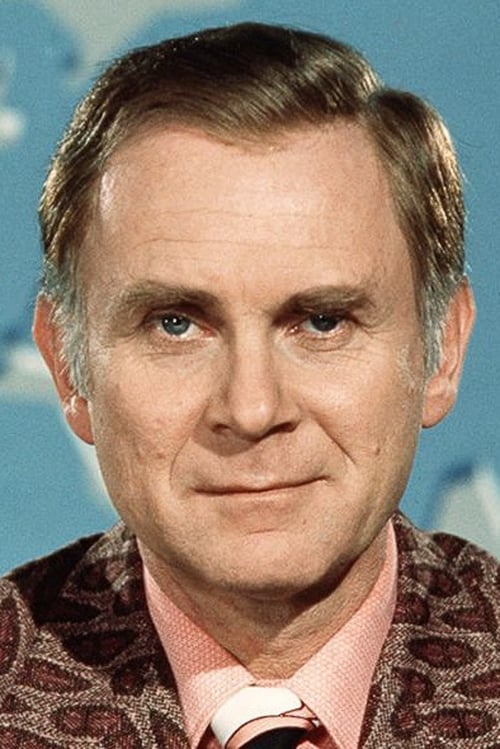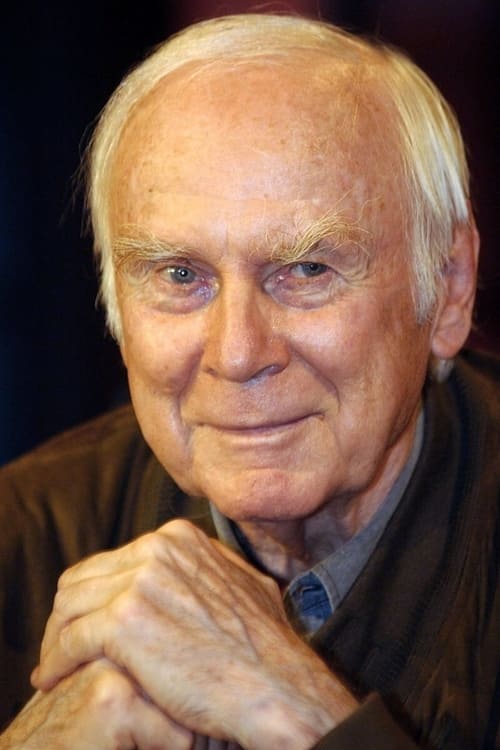
Vicco von Bülow
出生 : 1923-11-12, Brandenburg, Germany
死亡 : 2011-08-22
略歴
Auszug dt.Wikipedia
Bernhard-Viktor Christoph-Carl von Bülow (Loriot) wurde am 12. November 1923 als Sohn des Polizeileutnants Johann-Albrecht Wilhelm von Bülow (1899–1972) und dessen erster Ehefrau Charlotte Mathilde Luise, geborene von Roeder (1899–1929), Tochter Otto von Roeders (1876–1943), in Brandenburg geboren. Seine Eltern ließen sich 1928 in Gleiwitz scheiden.
Bei der Familie von Bülow handelt es sich um ein altes mecklenburgisches Adelsgeschlecht mit gleichnamigem Stammhaus im Dorf Bülow bei Rehna. Der Name Bülow wurde erstmals 1154 bei der Grundsteinlegung des Ratzeburger Doms urkundlich erwähnt. Die Stammreihe beginnt mit Godofridus de Bulowe (1229).[2][3] Viele Mitglieder der Familie brachten es im Staatswesen, beim Militär und in der Kirche zu hohen Ämtern oder machten sich um das Kulturleben verdient.[4] Zu Vicco von Bülows Verwandten zählt Bernhard von Bülow, Reichskanzler im Deutschen Kaiserreich.
Von Bülow war ab 1951 mit der Hamburger Kaufmannstochter und damaligen Modeschülerin Rose-Marie, geborene Schlumbom, genannt Romi (* 1929), verheiratet und war Vater zweier Töchter – Bettina und Susanne – sowie Großvater zweier Enkelkinder;[5] er lebte von 1963 bis zu seinem Tod in Ammerland am Starnberger See.[6]
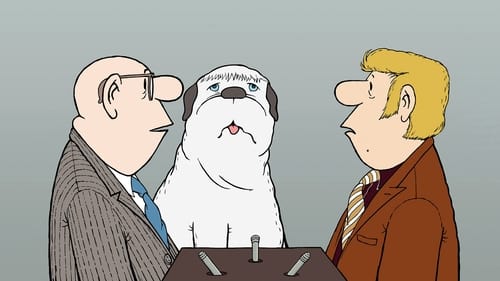
Director
Loriot, whose real name was Bernhard-Viktor Christoph-Carl von Bülow, or Vicco von Bülow for short (1923-2011), is considered to have been the greatest and most versatile German comedian of the twentieth century. From 1976 to 1978, Radio Bremen commissioned his six-part television series “Loriot”, in which live action skits alternated with short animated sketches. The series is believed to be the highpoint of Loriot’s television work and was to establish his cult status; it has long been an integral part of German cultural heritage.

Loriot, whose real name was Bernhard-Viktor Christoph-Carl von Bülow, or Vicco von Bülow for short (1923-2011), is considered to have been the greatest and most versatile German comedian of the twentieth century. From 1976 to 1978, Radio Bremen commissioned his six-part television series “Loriot”, in which live action skits alternated with short animated sketches. The series is believed to be the highpoint of Loriot’s television work and was to establish his cult status; it has long been an integral part of German cultural heritage.

Director

Himself

Writer
Year by year millions celebrate Christmas with the Hoppenstedts. Where else would you learn how to have comfortable holidays (like with the game "Wir bauen uns ein Atomkraftwerk") and how to put secretly dispose of wrapping paper in the hallway?

Director
Year by year millions celebrate Christmas with the Hoppenstedts. Where else would you learn how to have comfortable holidays (like with the game "Wir bauen uns ein Atomkraftwerk") and how to put secretly dispose of wrapping paper in the hallway?

Opa Hoppenstedt
Year by year millions celebrate Christmas with the Hoppenstedts. Where else would you learn how to have comfortable holidays (like with the game "Wir bauen uns ein Atomkraftwerk") and how to put secretly dispose of wrapping paper in the hallway?
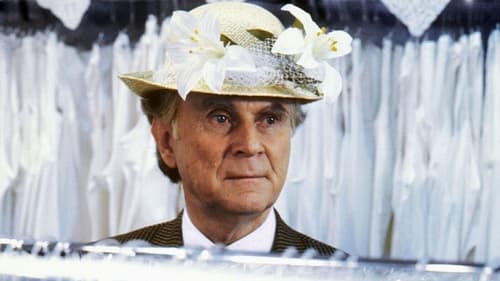
Heinrich Lohse
After ordering enough typewriting paper for 40 years, just to get discount, Heinrich Lohse is forced to retire.

Screenplay
After ordering enough typewriting paper for 40 years, just to get discount, Heinrich Lohse is forced to retire.

Director
After ordering enough typewriting paper for 40 years, just to get discount, Heinrich Lohse is forced to retire.
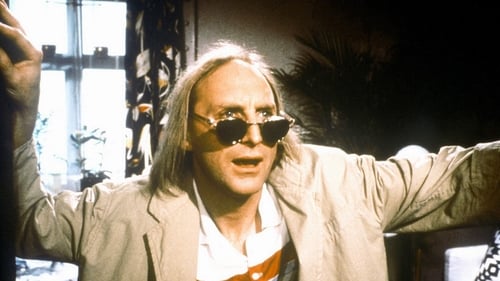
Paul Winkelmann
Otto is the only one who is able to save his Frisian fatherland; but he needs the help of his brother, who is abroad. But his brother does not want to fulfill what he has sworn as a child. So it takes Otto a while to convince him while time is running low for his plans to save East-Frisia.
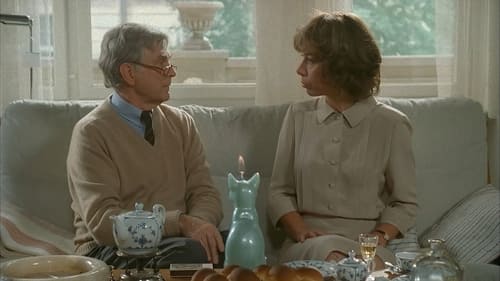
Screenplay
Paul Winkelmann is the CEO of a successful business in Hamburg that he took over after the death of his father eight years ago. But he is still strongly dominated by his 78 year old mother who cares for him as a child, and who cannot understand why he took an apartment on his own after all these years. The real "problem" starts when Paul gets to know psychologist Margarethe Tietze whose relationship to her parents is also not so easy after all.

Paul Winkelmann
Paul Winkelmann is the CEO of a successful business in Hamburg that he took over after the death of his father eight years ago. But he is still strongly dominated by his 78 year old mother who cares for him as a child, and who cannot understand why he took an apartment on his own after all these years. The real "problem" starts when Paul gets to know psychologist Margarethe Tietze whose relationship to her parents is also not so easy after all.

Director
Paul Winkelmann is the CEO of a successful business in Hamburg that he took over after the death of his father eight years ago. But he is still strongly dominated by his 78 year old mother who cares for him as a child, and who cannot understand why he took an apartment on his own after all these years. The real "problem" starts when Paul gets to know psychologist Margarethe Tietze whose relationship to her parents is also not so easy after all.

Klaus-Günther Bröse

Walter, der Göttliche

Opera critic
A musical comedy written by Heinz Erhardt and his son Gero Erhardt.

Loriot

Director
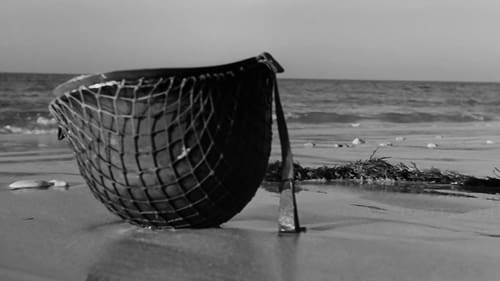
Pemsel's adjutant (uncredited)
第2次大戦末期の1944年6月、ヨーロッパにおいてナチスドイツはロシア東部戦線が膠着状態の中で、米英仏の連合軍がフランス北部に上陸するとの予測が強まり、大西洋岸に地雷や障害物などを埋めて上陸作戦に備えていた。北アフリカから戻ってきた独陸軍B軍団長ロンメル元帥は、イギリスに面した海岸線で地雷の敷設が400万個と聞いて、600万個に増やすよう檄を飛ばしていた。その時ロンメルは「あの水平線の向うに大軍がいる。今か今かと出撃を待っている。しかし一兵たりとも上陸はさせない。あの水際で撃滅させるのだ。上陸する最初の24時間が極めて重要で、その時は連合軍にとっても我々にとっても一番長い日となるだろう。」と語った…

Kauziger Professor
"Wunderbar" takes on a new meaning in this routine satire by Bernhard Wicki about a bar that is miraculously transported by God Himself to a nearby, new location on an island. The nature of the miracle is a bit strange, but it comes in answer to Pater Malachias' prayers to get the sin-ridden place out of the center of the city. The good and naive Malachias is subtly played by Horst Bollimann. Once this miracle of relocation has occurred, the sharks and entrepreneurs, who would bilk both the faithful and the curiosity-seekers alike, crop up like an unwanted epidemic. The mercenary and the sacred clash, as many try to find deeper meaning in what has happened, and Pater Malachias starts to doubt the wisdom of his original prayer.
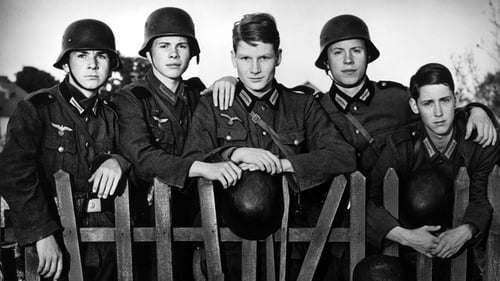
Stabsweldfebel
A group of German boys are ordered to protect a small bridge in their home village during the waning months of the second world war. Truckloads of defeated, cynical Wehrmacht soldiers flee the approaching American troops, but the boys, full of enthusiasm for the "blood and honor" Nazi ideology, stay to defend the useless bridge. The film is based on a West German anti-war novel of the same name, written by Gregor Dorfmeister.

Matrose
Four young German naval cadets begin their military service in 1940; only one of them will survive.

Page am Hof des Herzogs Karl Eugen
The young Schiller, whose heart and soul are writing and poetry, is forced into the military academy (the pride and joy of the Duke of Württemberg). Schiller is disgusted by the everyday routine of the military, always back and forth between breeding and drills. Conversation, conflict or even critique are discouraged – the oppression insufferable for the young rebel. Disgusted by the brutality, he writes his drama "The Bandit", which he would later publish anonymously. But following a frank conversation with the Duke, Schiller is dishonored and must leave the land.

